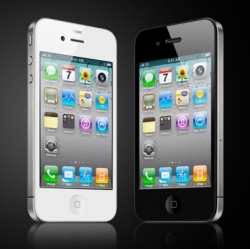
Smartphone data was more reliable in detecting depression than daily questions participants answered about how sad they were feeling on a scale of 1 to 10. Those answers may be rote and often not reliable, said lead author Sohrob Saeb, a postdoctoral fellow and computer scientist in preventive medicine at Feinberg.
“The data showing depressed people tended not to go many places reflects the loss of motivation seen in depression,” said Mohr, who is a clinical psychologist and professor of preventive medicine at Feinberg. “When people are depressed, they tend to withdraw and don’t have the motivation or energy to go out and do things.”
The research could ultimately lead to monitoring people at risk of depression and enabling health care providers to intervene more quickly, they suggest. While the phone usage data didn’t identify how people were using their phones, Mohr suspects people who spent the most time on them were surfing the web or playing games, rather than talking to friends.
“People are likely, when on their phones, to avoid thinking about things that are troubling, painful feelings or difficult relationships,” Mohr said. “It’s an avoidance behavior we see in depression.”
That assumption seems questionable; non-depressed people often spend time on phones texting, checking Facebook, reading, emails, etc. But Saeb also analyzed the GPS locations and phone usage for 28 individuals (20 females and eight males, average age of 29) over two weeks. The sensor tracked GPS locations every five minutes.
To determine the relationship between phone usage and geographical location and depression, the subjects took a widely used standardized questionnaire measuring depression, the PHQ-9, at the beginning of the two-week study.
The PHQ-9 asks about symptoms used to diagnose depression such as sadness, loss of pleasure, hopelessness, disturbances in sleep and appetite, and difficulty concentrating. Then, Saeb developed algorithms using the GPS and phone usage data collected from the phone, and correlated the results of those GPS and phone usage algorithms with the subjects’ depression test results.
Of the participants, 14 did not have any signs of depression and 14 had symptoms ranging from mild to severe depression.
The goal of the research is to passively detect depression and different levels of emotional states related to depression, Saeb said. The information ultimately could be used to monitor people who are at risk of depression to, perhaps, offer them interventions if the sensor detected depression or to deliver the information to their clinicians. Future Northwestern research will look at whether getting people to change those behaviors linked to depression improves their mood.
“We will see if we can reduce symptoms of depression by encouraging people to visit more locations throughout the day, have a more regular routine, spend more time in a variety of places or reduce mobile phone use,” Saeb said.
